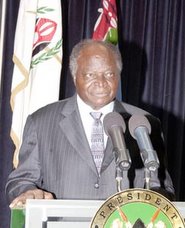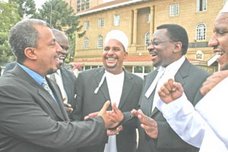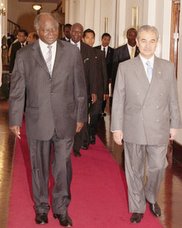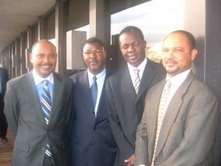
______
A recent article by Edmund Kwena in the Daily Nation about Shimoni boat operators was well timed.
The writer painted a clear picture of the issues facing the boat operators and the tension that is brewing in this part of the world.
As reported, the boat operators are protesting against the proposed raise in marine park fees that will drastically affect their earnings from tourists.
According to the spokesperson for the Kisite Private Boat Operators Association, Mr Kassim Mohamed, the current rate of $10 being (Sh690) charged by the Kenya Wildlife Service (KWS), is already hurting their business.
Therefore, the proposed 100 per cent raise from next July will be catastrophic, to say the least. Almost all products and services in Kenya and the world over are becoming more expensive due to rising costs of production and other economic factors.
For this reason, many people may wonder why boat operators are protesting against higher park fees that are not even charged to them in the first place. The fee is actually paid by the visiting foreigners directly to the KWS.
However, if one has a little understanding of the tourists, he will agree that they are the kind of individuals likely to be greatly discouraged to tour if park fees are raised.
Wasini Island Restaurant, Shimoni Slave Caves, the Kisite Marine Park, and the Mpunguti National Reserve in the area are visited mainly by second-tier visitors, who opt out of Maasai Mara and other relatively expensive Kenya tourists’ destinations.
Therefore, these south coast attractions have naturally fallen into the category of discounted or less costly destinations for visitors with less money such as foreign students.
KWS ought to think along these lines when planning to improve these parks and services. Great planning must consider all the stakeholders.
Not all tourists can go to Tsavo or take a flights to Maasai Mara. Some can only afford a few dollars for the Kisite swim and the Wasini Coral Gardens.
But the whole issue is not how much tourists can afford to pay at the park. Rather, the boat operators are concerned that the frequent fee increments are destroying their business.
When their prime fishing areas were “fenced off” to become marine parks in the 1970s, Wasini residents decided to become boat operators rather than fishermen.
It became a crime to fish in these parks and since they did not want to fish in Tanzanian waters, they diversified to tourist boats with great re-investment.
Tanzanians do not take kindly to Kenyans who fish in their waters.
The said Shimoni boat operators are typical low resources villagers, who can hardly make ends meet.
In the context of increased regulations regarding taxes, required boat safety-gear and mandatory insurance, their business is already becoming unprofitable and difficult to sustain.
KWS can put a smile on these tax-paying hardworking boat operators by proposing a park-fee that will attract more visitors.
In any case, park fees can be decreased or eliminated in order to save boat operators from losing their livelihoods.
Clearly, the proposed park fees will definitely hurt tourism and families in the areas.
There are many park services that need to be improved. Logically, higher fees may take care of this. But Wasini residents will not be able see it this way due to their current conditions.
The writer painted a clear picture of the issues facing the boat operators and the tension that is brewing in this part of the world.
As reported, the boat operators are protesting against the proposed raise in marine park fees that will drastically affect their earnings from tourists.
According to the spokesperson for the Kisite Private Boat Operators Association, Mr Kassim Mohamed, the current rate of $10 being (Sh690) charged by the Kenya Wildlife Service (KWS), is already hurting their business.
Therefore, the proposed 100 per cent raise from next July will be catastrophic, to say the least. Almost all products and services in Kenya and the world over are becoming more expensive due to rising costs of production and other economic factors.
For this reason, many people may wonder why boat operators are protesting against higher park fees that are not even charged to them in the first place. The fee is actually paid by the visiting foreigners directly to the KWS.
However, if one has a little understanding of the tourists, he will agree that they are the kind of individuals likely to be greatly discouraged to tour if park fees are raised.
Wasini Island Restaurant, Shimoni Slave Caves, the Kisite Marine Park, and the Mpunguti National Reserve in the area are visited mainly by second-tier visitors, who opt out of Maasai Mara and other relatively expensive Kenya tourists’ destinations.
Therefore, these south coast attractions have naturally fallen into the category of discounted or less costly destinations for visitors with less money such as foreign students.
KWS ought to think along these lines when planning to improve these parks and services. Great planning must consider all the stakeholders.
Not all tourists can go to Tsavo or take a flights to Maasai Mara. Some can only afford a few dollars for the Kisite swim and the Wasini Coral Gardens.
But the whole issue is not how much tourists can afford to pay at the park. Rather, the boat operators are concerned that the frequent fee increments are destroying their business.
When their prime fishing areas were “fenced off” to become marine parks in the 1970s, Wasini residents decided to become boat operators rather than fishermen.
It became a crime to fish in these parks and since they did not want to fish in Tanzanian waters, they diversified to tourist boats with great re-investment.
Tanzanians do not take kindly to Kenyans who fish in their waters.
The said Shimoni boat operators are typical low resources villagers, who can hardly make ends meet.
In the context of increased regulations regarding taxes, required boat safety-gear and mandatory insurance, their business is already becoming unprofitable and difficult to sustain.
KWS can put a smile on these tax-paying hardworking boat operators by proposing a park-fee that will attract more visitors.
In any case, park fees can be decreased or eliminated in order to save boat operators from losing their livelihoods.
Clearly, the proposed park fees will definitely hurt tourism and families in the areas.
There are many park services that need to be improved. Logically, higher fees may take care of this. But Wasini residents will not be able see it this way due to their current conditions.
ABDILLAHI S. ALAWY,
Wasini Island, Shimoni.
Publication Date: 8/17/2007














